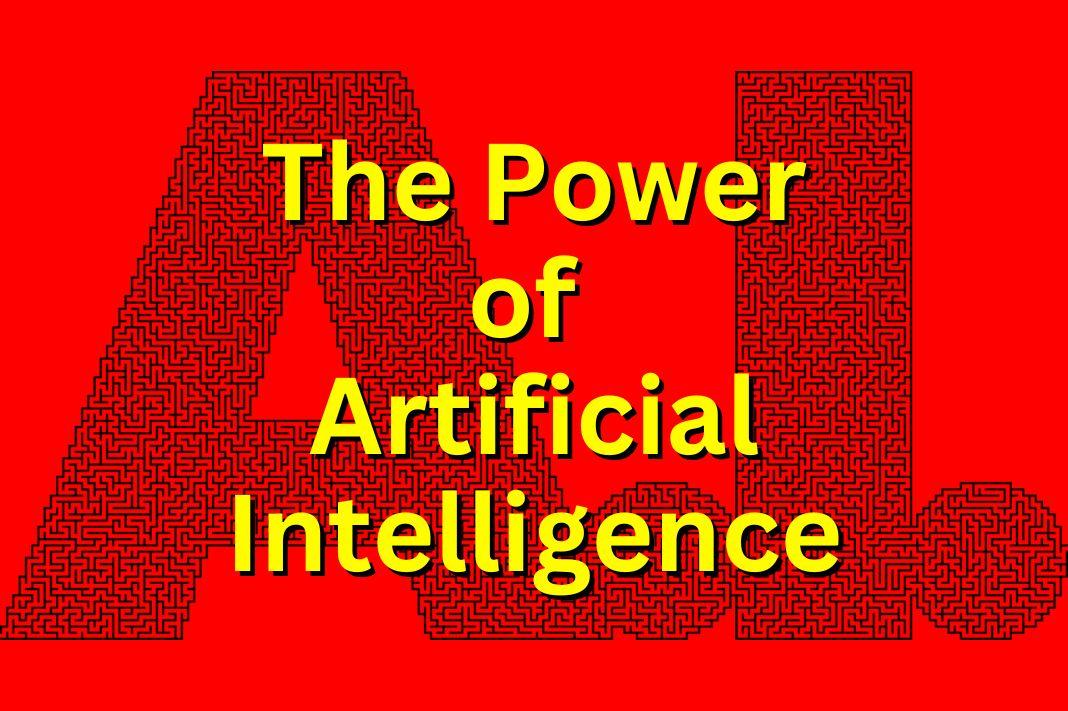Revolutionizing the World
 Artificial Intelligence (AI) has emerged as a groundbreaking technology, revolutionizing various aspects of our lives. With its unparalleled capabilities, AI has become a driving force behind innovation, transforming industries, and reshaping the world as we know it. In this article, we will explore the extraordinary power of AI and its far-reaching impact.
Artificial Intelligence (AI) has emerged as a groundbreaking technology, revolutionizing various aspects of our lives. With its unparalleled capabilities, AI has become a driving force behind innovation, transforming industries, and reshaping the world as we know it. In this article, we will explore the extraordinary power of AI and its far-reaching impact.
AI’s ability to process and analyze massive amounts of data with lightning speed is unparalleled. This technology has enabled industries such as healthcare, finance, manufacturing, and transportation to optimize their operations, make informed decisions, and achieve unprecedented levels of efficiency. By harnessing the power of AI, organizations can extract valuable insights, detect patterns, and predict outcomes with unparalleled accuracy.
AI has emerged as a powerful force that is reshaping our world. Its ability to process vast amounts of data, automate complex tasks, and enhance human-machine interaction has revolutionized industries and transformed lives. Click To Tweet Moreover, AI has taken automation to new heights. Machines equipped with AI algorithms can perform complex tasks that were once exclusive to human capabilities. From self-driving cars that navigate our roads autonomously to intelligent robots working seamlessly on assembly lines, AI-powered automation is redefining productivity and expanding the boundaries of what is achievable.
Moreover, AI has taken automation to new heights. Machines equipped with AI algorithms can perform complex tasks that were once exclusive to human capabilities. From self-driving cars that navigate our roads autonomously to intelligent robots working seamlessly on assembly lines, AI-powered automation is redefining productivity and expanding the boundaries of what is achievable.
The impact of AI goes beyond efficiency and automation; it has also revolutionized the way we interact with technology. Natural Language Processing (NLP) and computer vision techniques have empowered AI systems to understand and respond to human commands, leading to the rise of virtual assistants and chatbots. These intelligent agents have simplified our lives, providing personalized recommendations, answering queries, and even mimicking human conversation.
 In the field of healthcare, AI has the potential to save lives and improve patient outcomes. From early disease detection to precision medicine, AI algorithms can analyze medical records, genetic data, and real-time patient information to provide accurate diagnoses and personalized treatment plans. With AI’s assistance, medical professionals can make more informed decisions, leading to better patient care and enhanced medical research.
In the field of healthcare, AI has the potential to save lives and improve patient outcomes. From early disease detection to precision medicine, AI algorithms can analyze medical records, genetic data, and real-time patient information to provide accurate diagnoses and personalized treatment plans. With AI’s assistance, medical professionals can make more informed decisions, leading to better patient care and enhanced medical research.
However, alongside these transformative capabilities, AI also poses ethical challenges. Concerns around data privacy, algorithmic bias, and the impact on employment need to be addressed to ensure responsible and equitable deployment of AI technologies.
This technology has enabled industries such as healthcare, finance, manufacturing, and transportation to optimize their operations, make informed decisions, and achieve unprecedented levels of efficiency. Click To TweetIn conclusion, AI has emerged as a powerful force that is reshaping our world. Its ability to process vast amounts of data, automate complex tasks, and enhance human-machine interaction has revolutionized industries and transformed lives. As we navigate the future, it is crucial to harness the potential of AI while addressing the associated ethical considerations. With responsible development and deployment, AI will continue to push the boundaries of human ingenuity, unlocking new frontiers and propelling us into a future that was once unimaginable.




